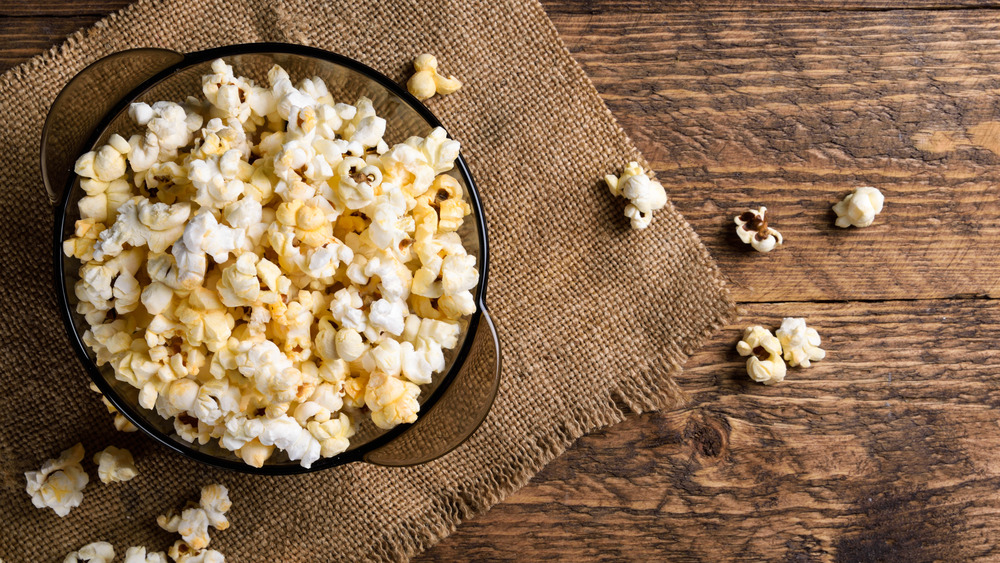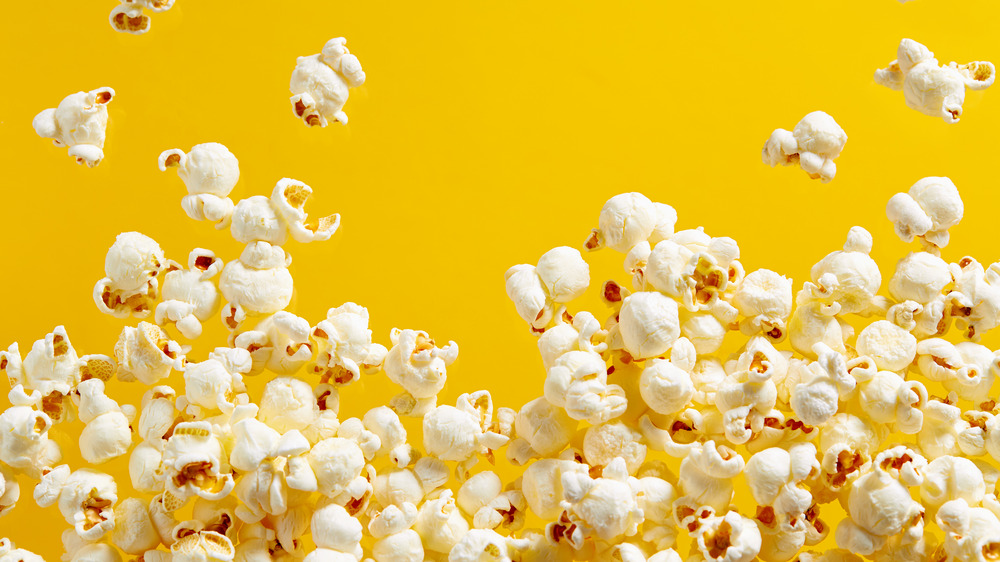Why You Shouldn't Use The Water Only Method When Making Popcorn
Puffed kernels of sweet corn, laced with a crunchy layer of salt, few things are better than snacking on freshly popped popcorn. The initial sensation of sinking your teeth into the fluffy exterior is quickly followed by the joy of reaching the toasted, nutty center. It's impossible to stop at one kernel, so it's no surprise the average American eats 68 quarts of popcorn each year, per a 2015 article by Northern AG Network.
And when it comes to snacking, popcorn makes an excellent, wholesome choice. According to Popcorn.org, popcorn is a low-calorie, low-fat whole grain (three cups equals one serving from the grain group) and is rich in fiber, B vitamins, zinc, and magnesium. Healthline adds that plant-based popcorn is brimming with polyphenols, powerful antioxidants that prevent free radicals from damaging our cells and provide other benefits, such as improved blood circulation, better digestive health, and a reduced risk of cancer and numerous diseases.
Air-popped popcorn has just 93 calories and 1 gram of fat per 3-cup serving (via Verywell Fit). But add oil to the pot and that same 3 cups jumps to 177 calories and 11 grams of fat (via fitbit). To eliminate calories and fat, popping corn in water instead of oil sounds plausible (via Foodtastic Mom), but does the method produce respectable popcorn?
The water only method doesn't always work
Cooking Light asserts that using water instead of oil requires "practice and diligence" but it's possible to produce fluffy popcorn. In their method, popcorn kernels are placed in a heavy, lidded pot and covered with water (submerged, not floating). The pot is set over medium-high heat and, when the water evaporates, another 1/4 cup is added. Once the kernels start popping, the heat is reduced, the pan is almost constantly shaken, and the kernels are cooked until almost all have popped.
The Flaming Vegan shares a similar method but warns that the process takes longer than oil and requires some trial and error to get it right. Wide Open Eats states that, once you've mastered the process, water-popped popcorn rivals the movie theater version of the snack. But don't jump ship just yet.
The Kitchn doesn't share the same sentiment. After several attempts and tweaks to the cooking method, using water to pop popcorn produced kernels that were scorched and unpopped. Interestingly, Medical News Today declares that you don't need water (save for a few drops) or oil, just a pan with a tight-fitting lid. Amy's Healthy Baking adds that a nonstick pot helps ensure that the kernels don't stick to the bottom of the pan before they pop.If you're a fan of oil-popped popcorn, The Cleveland Clinic suggests using healthy oils like walnut, avocado, and extra virgin olive to add nutrients and control hunger.

